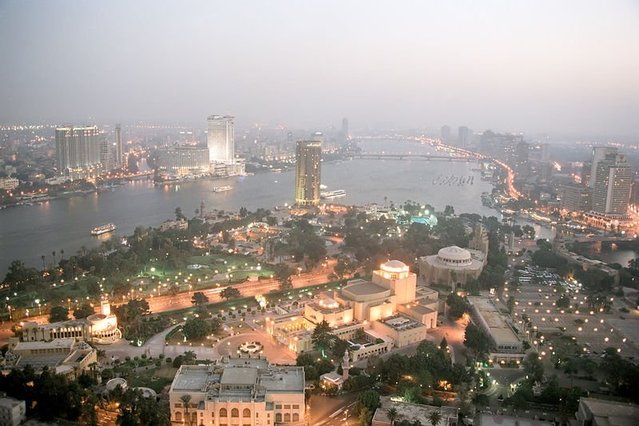TripAdvisor accused of failing to stop fake hotel reviews

In a nutshell
TripAdvisor is refuting claims by consumer rights group Which? that it has been failing to stop fake and suspicious five-star hotel reviews. It says an investigation by Which? is based on a ‘flawed understanding of fake review patterns’ and relies on ‘too many assumptions, and too little data’.
What did Which? investigate?
It analysed 247,277 TripAdvisor reviews of the top 10 highest ranked hotels, by travellers, in London, Paris, Barcelona, Rome, Cape Town, Punta Cana, Jordan, Las Vegas and Cairo, plus 10 Premier Inns and 10 Travelodges in London (but we’ll come to those later). It compared the proportion of first-time three-star reviews, arguing that these are rarely faked, against the proportion of first-time reviewers who left five-star reviews.
What did the investigation find?
It found multiple cases where the number of five-star reviews made by first-time reviewers were significantly higher than the number of three-star reviews. For example, at the highest rated hotel in Cairo 79% of five-star reviews were left by profiles that had no other contributions on the site, compared with 14% for three-star reviews. Shortly after Which? shared its findings, TripAdvisor removed reviews from the property and it lost its status as the official ‘best hotel in Cairo’. Which? Travel reported 15 of the worst cases to TripAdvisor, which admitted that 14 of these had already been caught with fake positive reviews in the last year.
What did it conclude?
Which? believes this research raises a number of serious issues with reviews on TripAdvisor.
"Reviews are not verified and therefore it is not clear whether reviewers have even stayed at a hotel when they rate it. Travellers do not know whether hotels have been trying to cheat the system," it said.
"Despite 14 of the hotels flagged having had at least one suspicious review removed in the last year, none of them carried any kind of warning at the time Which? looked. And TripAdvisor’s most serious warning – the red badge – remains on hotel sites for just a matter of weeks."
What did TripAdvisor say in its defence?
TripAdvisor says it’s far too simplistic to assume all first-time reviewers are suspicious as every genuine reviewer in the world is at some point a first-time reviewer.
It argues: "Accurate fraud detection requires analysis of a wide range of data-points, such as IP information, location data or details about the device an account was using when submitting a review. This crucial data is missing from Which’s analysis, and therefore its findings do not and cannot provide a reliable indication of the true volume of review fraud.
"By contrast, we employ sophisticated fraud detection technology that is able to analyse hundreds of data-points based on a knowledge and understanding of review patterns gained from tracking hundreds of millions of reviews over a near 20-year period. This includes an ability track and analyse first-time reviews in far more detail and with far more rigour than Which’s team was able to do. We also have an industry-leading team of fraud investigators who work tirelessly to protect the site from fake reviews.
"We are confident our approach works, and is one of the reasons we continue to retain the trust of many millions of consumers worldwide. They know from their own experience of using TripAdvisor that it is a source of useful and accurate information on which they can rely."
And what about Premier Inn and Travelodge?
While Premier Inn reviews did not arouse suspicion, at two of the Travelodges almost half of the hundreds of five-star reviews came from first-time contributors who’d never reviewed anywhere else. Which? claims that TripAdvisor admitted that earlier this year that one of the hotels in question – the Travelodge Wembley Central – had been given its red warning badge, the site’s most severe warning, designed to let travellers know that reviews may have been manipulated and indicating that the hotel ‘repeatedly fails to remedy its behaviour and refuses to cooperate with TripAdvisor’s investigators’.
What does Travelodge have to say?
"We did experience a breakdown in our internal communication when TripAdvisor identified an irregular pattern of reviews at our Wembley Central Travelodge Hotel that needed investigating. Unfortunately on this occasion that matter was not managed effectively within the timeframe, and we have taken appropriate action to ensure this does not happen again.
"Wembley Central Travelodge has undergone a full refurbishment earlier this year and we are satisfied that the hotel reviews accurately reflect the customer experience at the hotel."
What the Mole says:
We tend to be a bit wary of Which? investigations which are often based on a small sample. On this occasion it wasn’t so much size of the sample but the selection. We find it odd that hotels in rather random destinations like Jordan, Las Vegas and Cairo were included. If we were being cynical, we’d question whether these destinations were singled out specifically because of the extent of the discrepancies found at certain hotels.
That aside, it does highlight that travellers shouldn’t place too much faith in review sites and should widen their research when making travel decisions and, of course, ask a trusted travel agent.
Related News Stories:
Bev
Editor in chief Bev Fearis has been a travel journalist for 25 years. She started her career at Travel Weekly, where she became deputy news editor, before joining Business Traveller as deputy editor and launching the magazine’s website. She has also written travel features, news and expert comment for the Guardian, Observer, Times, Telegraph, Boundless and other consumer titles and was named one of the top 50 UK travel journalists by the Press Gazette.
 United Kingdom
United Kingdom United States
United States Asia Pacific
Asia Pacific












































Dozens fall ill in P&O Cruises ship outbreak
Turkish Airlines flight in emergency landing after pilot dies
Boy falls to death on cruise ship
Unexpected wave rocks cruise ship
Storm Lilian travel chaos as bank holiday flights cancelled